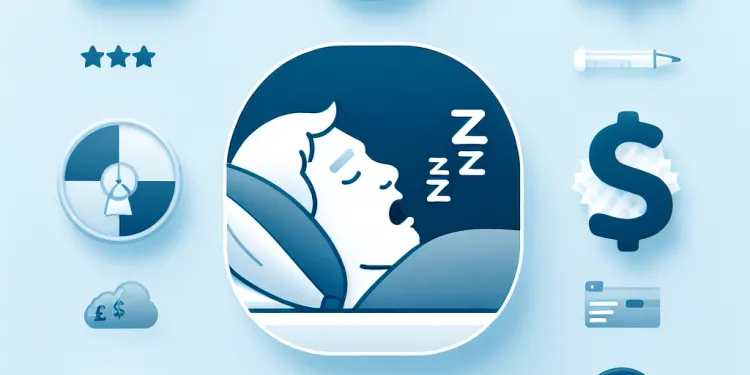
Find Help
More Items From Ergsy search
-
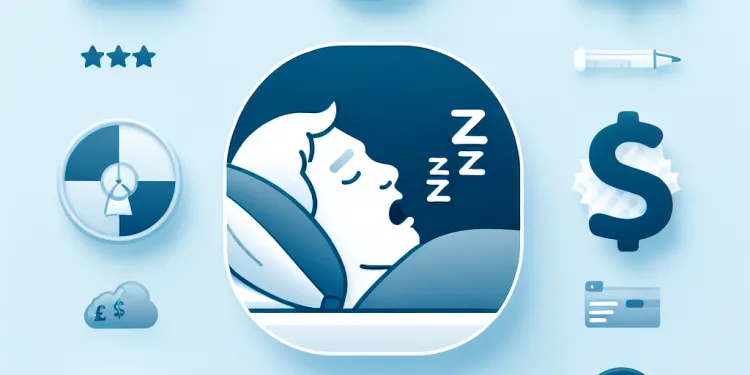
Is snoring always a sign of sleep apnea?
Relevance: 100%
-
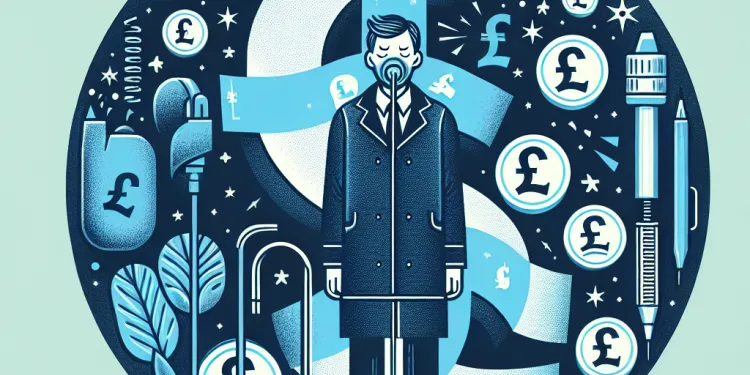
What is sleep apnoea?
Relevance: 78%
-

What is sleep apnea?
Relevance: 78%
-

Evidence-Based Interventions: snoring surgery in the absence of Obstructive Sleep Apnoea (OSA)
Relevance: 78%
-
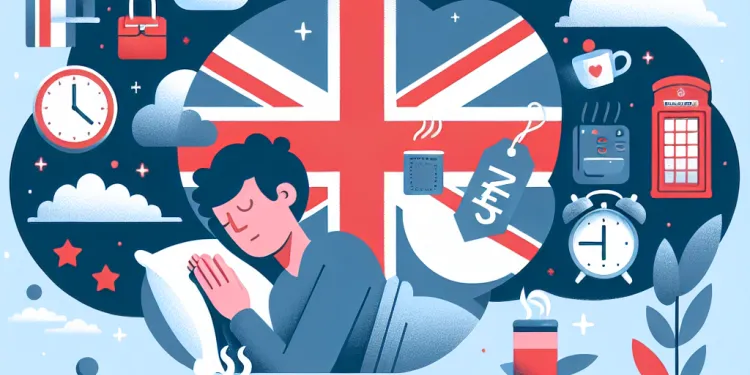
What are common symptoms of sleep apnea?
Relevance: 74%
-
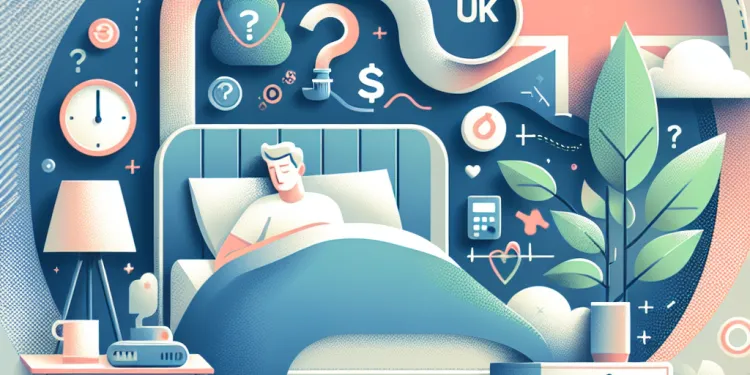
How common is sleep apnea?
Relevance: 72%
-

What are the main types of sleep apnea?
Relevance: 71%
-
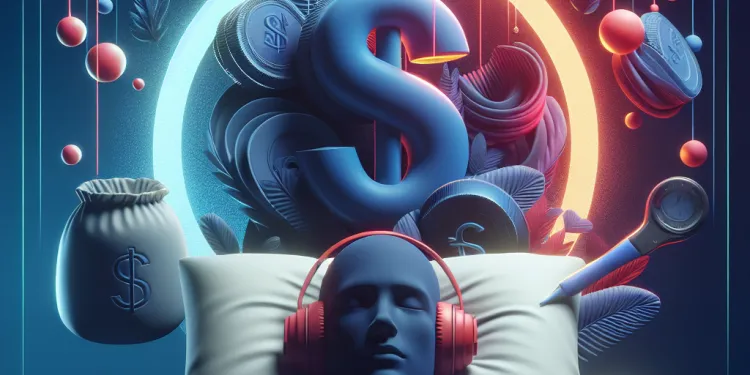
Why is sleep apnea dangerous?
Relevance: 70%
-

Does sleep apnea occur only in adults?
Relevance: 70%
-
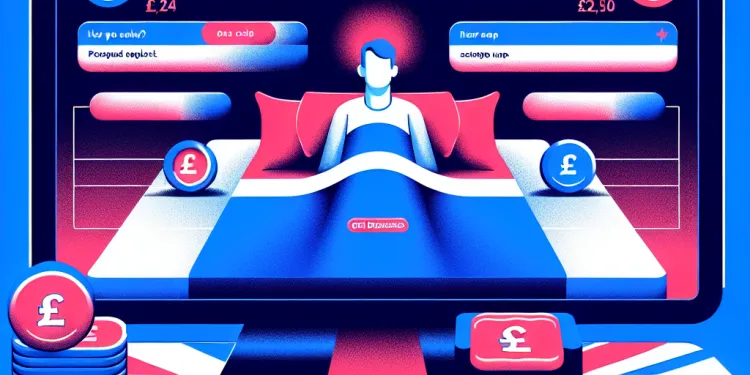
How is sleep apnea diagnosed?
Relevance: 69%
-

What is complex sleep apnea syndrome?
Relevance: 67%
-
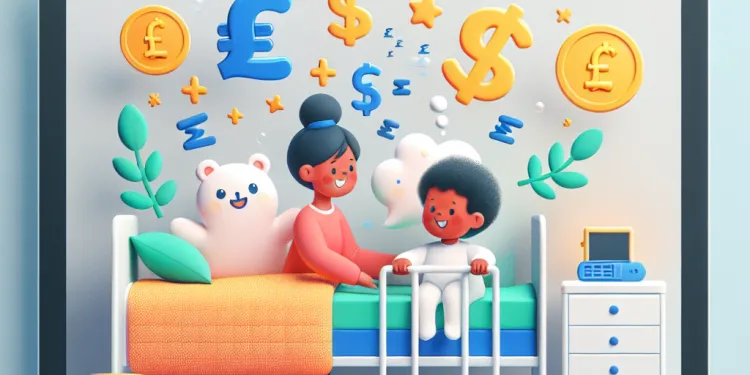
Can children have sleep apnea?
Relevance: 65%
-

What should I do if I suspect I have sleep apnea?
Relevance: 64%
-
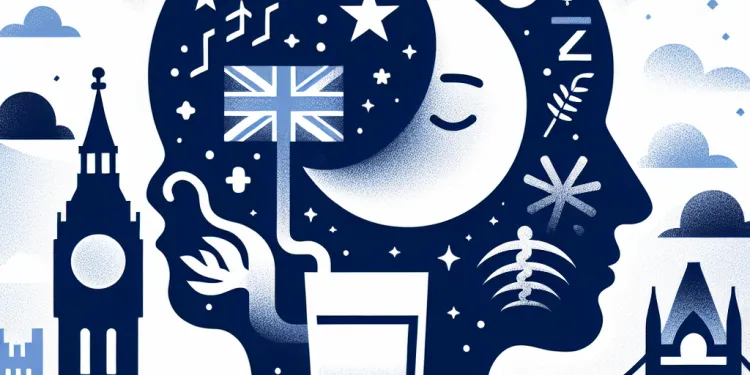
Can alcohol worsen sleep apnea?
Relevance: 63%
-
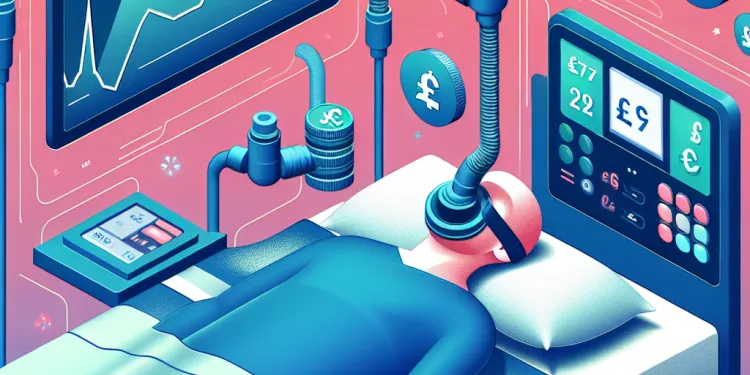
Is CPAP the only treatment for sleep apnea?
Relevance: 62%
-
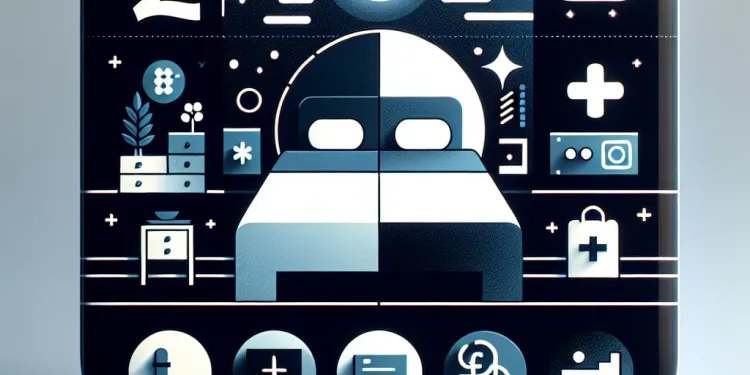
What treatments are available for sleep apnea?
Relevance: 62%
-

Can weight loss improve sleep apnea?
Relevance: 60%
-
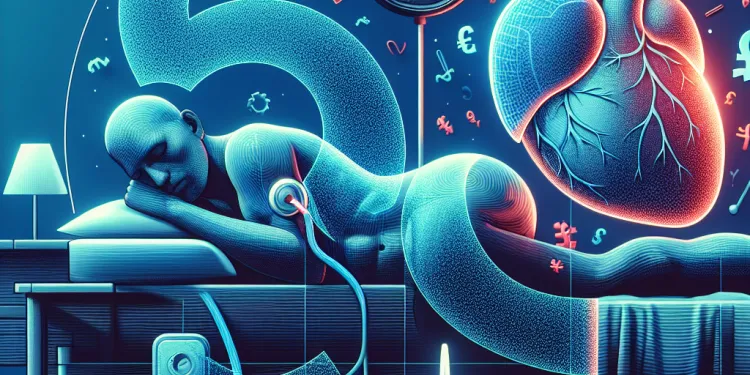
What is complex sleep apnea syndrome?
Relevance: 60%
-
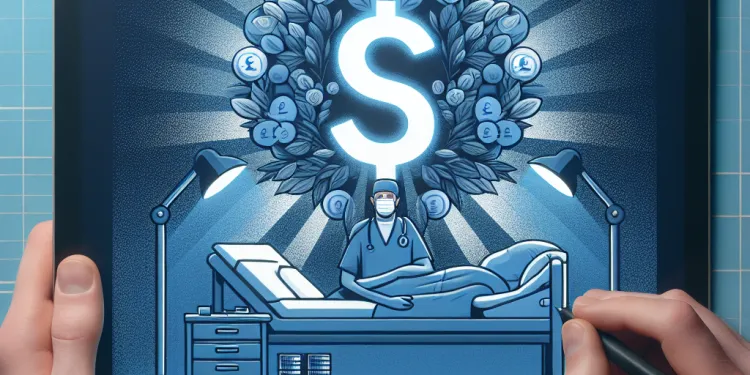
Can sleep apnea be cured?
Relevance: 60%
-

What causes obstructive sleep apnea?
Relevance: 56%
-

What lifestyle changes can help manage sleep apnea?
Relevance: 56%
-
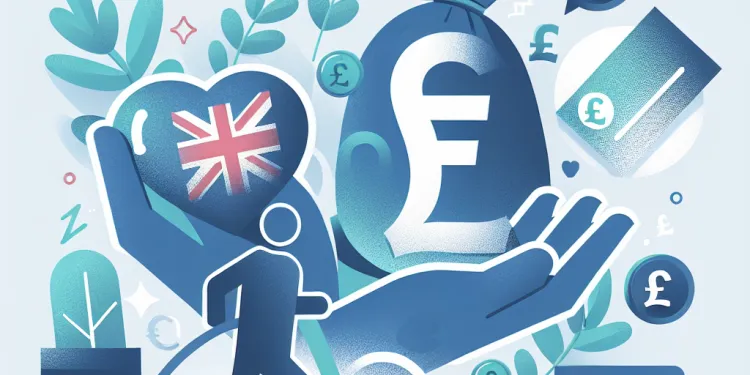
What are risk factors for developing sleep apnea?
Relevance: 55%
-
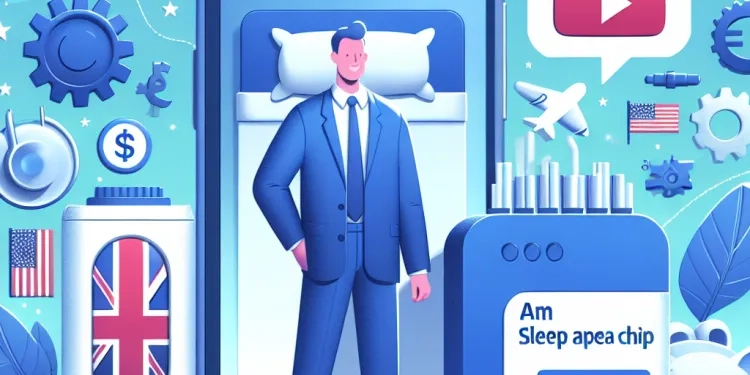
Am I eligible to try the new sleep apnea chip?
Relevance: 55%
-

How does the new Sleep Apnea Chip work?
Relevance: 53%
-
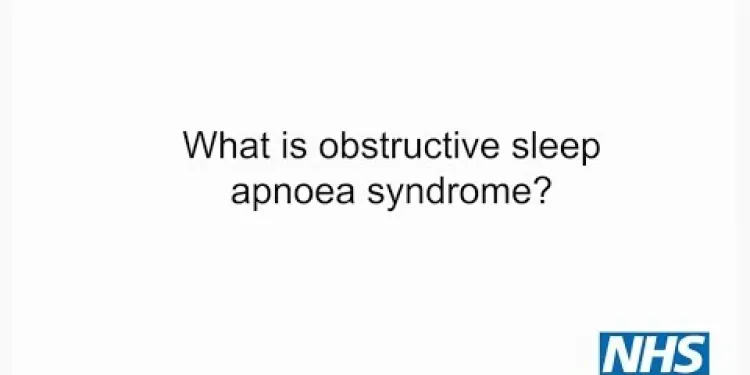
Introduction to obstructive sleep apnoea
Relevance: 50%
-
What is sleep apnoea?
Relevance: 31%
-

How does central sleep apnea differ from obstructive sleep apnea?
Relevance: 28%
-
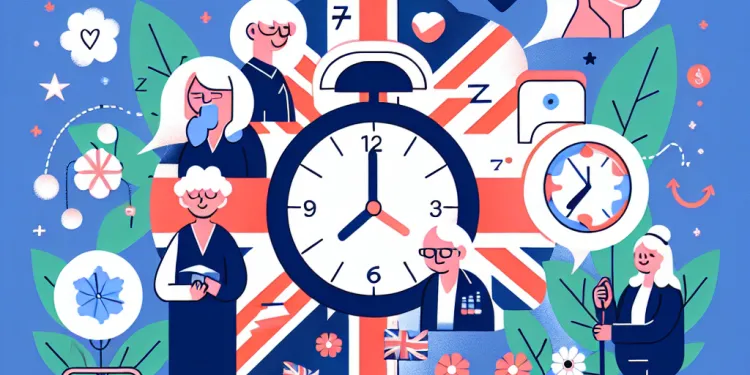
The Importance of Sleep for All Ages
Relevance: 26%
-

How does sleep quality relate to menopause symptoms?
Relevance: 25%
-
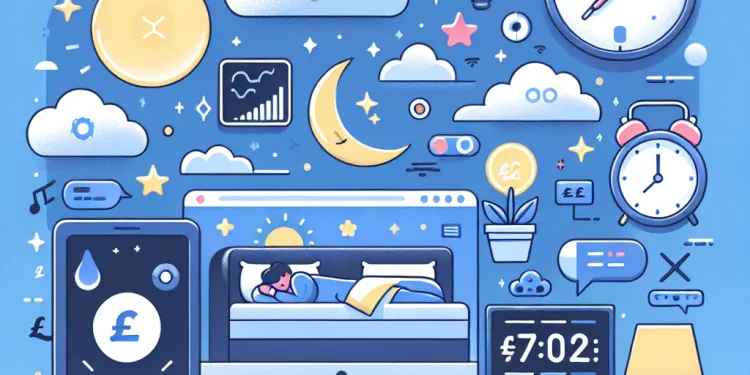
Does screen time affect both sleep onset and sleep maintenance?
Relevance: 24%
-
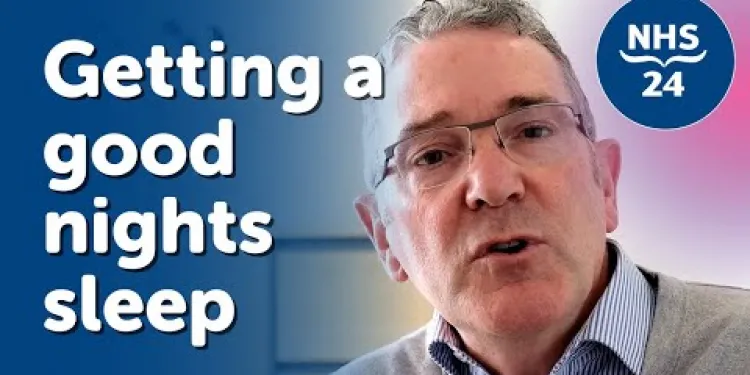
Top Tips to Help You Get a Good Nights Sleep
Relevance: 24%
-
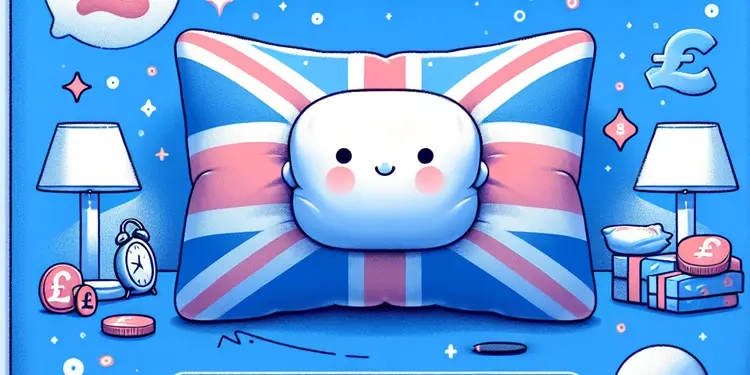
Are baby sleep pillows safe?
Relevance: 23%
-
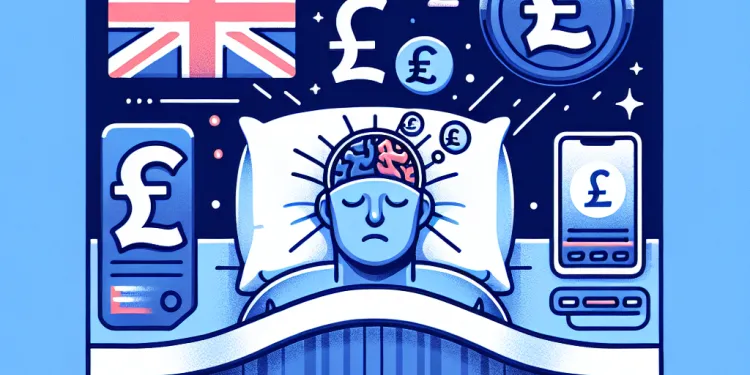
Is it safe to sleep after a concussion?
Relevance: 23%
-
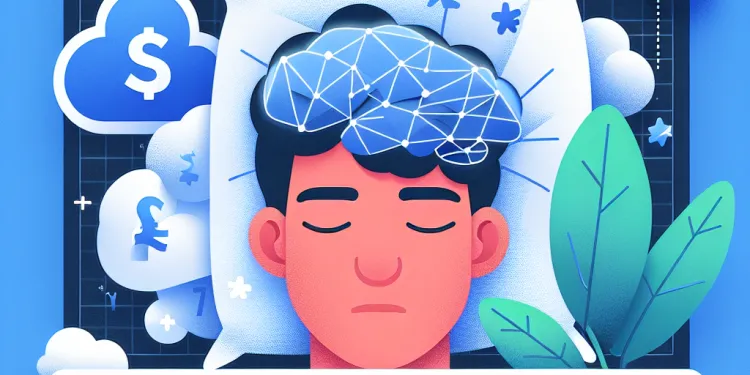
Is it safe to sleep after a concussion?
Relevance: 23%
-

Is it okay to use a baby sleep positioner?
Relevance: 22%
-
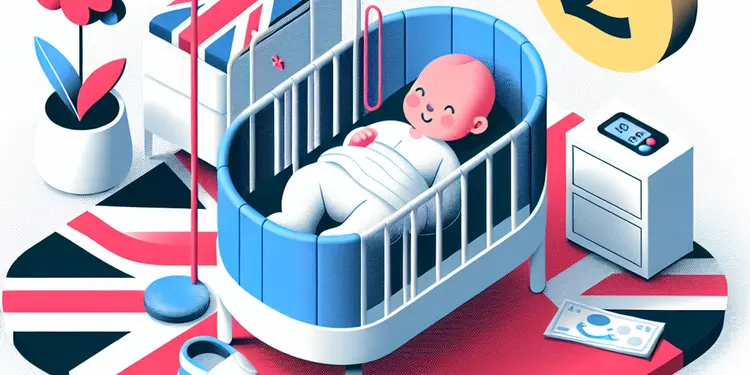
What is the safest sleep environment for an infant?
Relevance: 22%
-
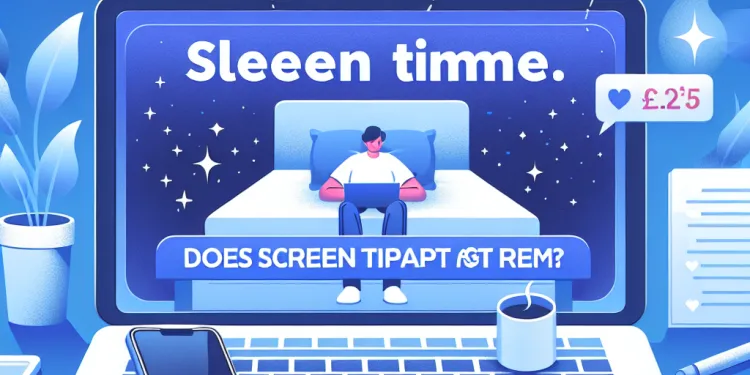
Does screen time impact REM sleep?
Relevance: 22%
-

Are there any benefits to using baby sleep pillows?
Relevance: 22%
-
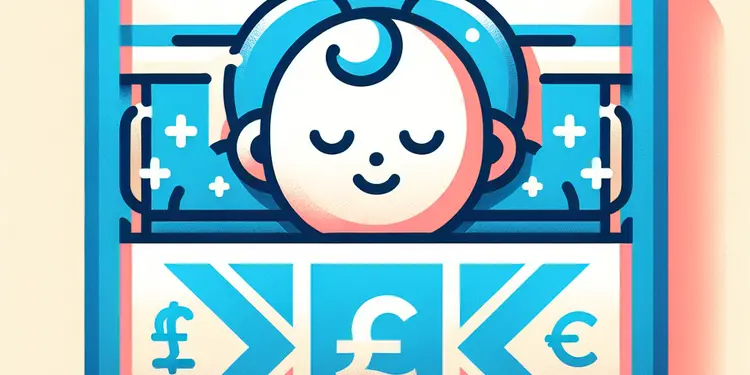
Why are baby sleep pillows not safe for infants?
Relevance: 22%
-

What are the risks associated with baby sleep pillows?
Relevance: 22%
Understanding Snoring and Sleep Apnea
Snoring is a common condition affecting many people in the UK, often causing disruption to both the snorer and their sleeping partner. While snoring is frequently perceived as a nuisance, it can sometimes indicate a more serious underlying health issue, such as obstructive sleep apnea (OSA). However, it is important to understand that not all snoring is linked to this sleep disorder.
What Causes Snoring?
Snoring occurs when the flow of air through the mouth and nose is partially obstructed during sleep. This can be due to various reasons, including nasal congestion, anatomical variations like a deviated septum, or lifestyle factors such as obesity and alcohol consumption. These partial obstructions lead to vibrations of the soft tissues in the throat, producing the sound known as snoring.
Differentiating Snoring from Sleep Apnea
While snoring is a key symptom of sleep apnea, the presence of snoring alone does not automatically indicate this condition. Sleep apnea is characterized by repetitive interruptions in breathing during sleep, resulting in reduced oxygen levels and disrupted sleep patterns. These episodes often lead to excessive daytime sleepiness, difficulty concentrating, and other health-related issues.
Signs Indicating Sleep Apnea
If you or a loved one snores and also experiences additional symptoms such as choking or gasping during sleep, morning headaches, or excessive daytime sleepiness, it might be beneficial to seek further evaluation for sleep apnea. These symptoms, combined with disruptive snoring, can indicate the presence of OSA.
When to Seek Medical Advice
If snoring is accompanied by significant breathing interruptions during sleep or is affecting the quality of life, it is advisable to consult a healthcare professional. A sleep study may be recommended to assess for sleep apnea or other sleep disorders. Addressing OSA is important as it has been linked to other health conditions, including hypertension, heart disease, and diabetes.
Treatment and Lifestyle Changes
For those diagnosed with sleep apnea, treatment options include Continuous Positive Airway Pressure (CPAP) therapy, which helps keep the airways open during sleep. Lifestyle changes can also significantly reduce snoring and improve overall sleep quality. These may include losing excess weight, avoiding alcohol near bedtime, and sleeping on your side rather than your back.
Conclusion
In summary, while snoring can be a symptom of obstructive sleep apnea, not all snoring indicates the presence of this sleep disorder. It is important for individuals who snore, particularly if they exhibit other symptoms of sleep apnea, to seek medical evaluation to ensure appropriate treatment and management. By understanding the differences and recognizing the signs of sleep apnea, individuals can take steps to improve their sleep health and overall wellbeing.
Understanding Snoring and Sleep Apnea
Snoring happens when someone makes a loud noise while sleeping. Many people in the UK snore. It can bother the person who snores and their partner. Snoring can sometimes mean a bigger health problem called sleep apnea (OSA). But not everyone who snores has sleep apnea.
What Causes Snoring?
People snore when air can't move freely through their mouth or nose while they sleep. This can be because of things like having a stuffy nose, a different nose shape, being overweight, or drinking alcohol. These things make the throat vibrate and cause the snoring sound.
Snoring vs. Sleep Apnea
Snoring can be a sign of sleep apnea, but just snoring doesn't mean you have it. Sleep apnea means you stop breathing for short times while sleeping, which lowers oxygen in your body and interrupts sleep. This can make you very sleepy during the day and hard to focus.
Signs of Sleep Apnea
Watch out for other signs like choking or gasping during sleep, headaches in the morning, or being very sleepy during the day. If these happen with snoring, you might want to check for sleep apnea.
When to Get Help
If snoring stops your breathing or affects your life, talk to a doctor. They might suggest a sleep study to check for sleep apnea. It’s important to fix sleep apnea because it can cause other health problems like high blood pressure and heart issues.
Treatment and Changes You Can Make
If you have sleep apnea, you might need a special machine called CPAP to help you breathe at night. You can also make changes like losing weight, not drinking alcohol before bed, and sleeping on your side to help stop snoring.
Conclusion
In short, snoring might mean you have sleep apnea, but not always. If you snore and have other sleep apnea signs, see a doctor. This way, you can get the right help and sleep better. Understanding these things can help you stay healthy and feel good.
Frequently Asked Questions
Is snoring always indicative of sleep apnea?
No, snoring can be a sign of sleep apnea but not always. There are other causes, such as nasal congestion or sleeping position, that can contribute to snoring.
What differentiates sleep apnea snoring from regular snoring?
Sleep apnea snoring is often louder, accompanied by pauses in breathing, choking, or gasping sounds. Regular snoring is typically more consistent and doesn't involve pauses.
Can occasional snoring be linked to sleep apnea?
Occasional snoring is less likely to be a sign of sleep apnea. However, if snoring is loud and frequent, it may be worth consulting a healthcare professional.
What are common causes of snoring other than sleep apnea?
Common causes include nasal congestion, alcohol consumption, obesity, sleeping position, and anatomical issues such as a deviated septum.
Can someone have sleep apnea without snoring?
Yes, it is possible to have sleep apnea without snoring, though snoring is a common symptom. Other symptoms include daytime sleepiness and interrupted sleep.
Should I see a doctor if I snore?
If your snoring is loud, frequent, or affects your sleep quality or that of your partner, it is advisable to see a doctor who may evaluate you for sleep apnea or other conditions.
What are the health risks associated with sleep apnea?
Sleep apnea can lead to serious health problems, including cardiovascular issues, diabetes, depression, and increased risk of accidents due to daytime sleepiness.
Can lifestyle changes help reduce snoring?
Yes, losing weight, avoiding alcohol before bed, changing sleep positions, and treating nasal congestion can help reduce snoring.
Is snoring more common in certain populations?
Snoring is more common in men, older adults, and individuals who are overweight. Anatomical differences can also play a role.
What are some treatments for snoring caused by sleep apnea?
Treatments for sleep apnea-related snoring include CPAP therapy, oral appliances, surgery, and lifestyle changes.
How is sleep apnea diagnosed?
Sleep apnea is typically diagnosed with a sleep study, which can be conducted at a sleep center or sometimes at home with portable equipment.
What role does sleeping position play in snoring?
Sleeping on your back can cause the tongue and soft tissues to block the airway, increasing snoring. Sleeping on your side may help reduce snoring.
Can nasal strips help with snoring?
Nasal strips may help reduce snoring by improving airflow through the nose, particularly if nasal congestion is a contributing factor.
What symptoms accompany sleep apnea besides snoring?
In addition to snoring, symptoms of sleep apnea can include pauses in breathing, excessive daytime sleepiness, morning headaches, and irritability.
Is weight loss effective for reducing sleep apnea symptoms?
Weight loss can be effective in reducing the severity of sleep apnea symptoms, especially in cases where excess weight contributes to airway obstruction.
Can children have sleep apnea if they snore?
Yes, children can also have sleep apnea. If a child snores persistently, it should be evaluated by a healthcare professional.
How does alcohol consumption affect snoring?
Alcohol relaxes the muscles of the throat, which can worsen snoring and may contribute to sleep apnea.
Are there any devices available to help with snoring?
There are several devices designed to help reduce snoring, including CPAP machines, oral appliances, and specially designed pillows.
Can allergies contribute to snoring?
Yes, allergies can cause nasal congestion and airway irritation, which can increase the likelihood of snoring.
What is the first step if I suspect I have sleep apnea?
The first step is to consult with a healthcare provider who may recommend a sleep study to accurately diagnose sleep apnea.
Does snoring always mean you have sleep apnea?
If you snore, it does not always mean you have sleep apnea.
Sleep apnea is a health problem that makes you stop breathing for short times during sleep.
If you snore loudly, feel very tired during the day, or stop breathing when asleep, talk to a doctor. They can help you find out if you have sleep apnea.
Reading tools like text-to-speech apps can help make reading easier. Highlighting text while reading can also help with focus.
Sometimes, snoring can mean you have sleep apnea, but not always. Snoring can also happen because your nose is blocked or because of how you are sleeping.
If you find it hard to understand long words, you can use tools that read the text out loud to you. Breaking down sentences into shorter bits can also help.
How is sleep apnea snoring different from regular snoring?
Some people snore when they sleep. Snoring can sound loud and rough. But, there are two types of snoring:
- Regular Snoring: This is normal and does not stop your breathing.
- Sleep Apnea Snoring: This is when snoring stops your breathing for a short time. It can happen many times at night.
If you or someone else has sleep apnea snoring, it is good to talk to a doctor. They can help you feel better and sleep well.
Here are some tips that might help:
- Try sleeping on your side instead of your back.
- Raise your head with an extra pillow.
- Avoid alcohol before bed.
- Use special strips on your nose to help you breathe better.
When someone has sleep apnea, they snore very loudly. They might stop breathing for a bit or make sounds like choking or gasping.
Regular snoring is usually quieter. It doesn't have the pauses like sleep apnea snoring does.
Tools can help! You could try using a special pillow or a nose strip to help with snoring. A doctor can also give more advice.
Does snoring sometimes mean you have sleep apnea?
Sometimes people snore when they sleep. This is okay. But if you snore a lot and it is very loud, you should talk to a doctor.
Why do people snore if they do not have sleep apnea?
Snoring can happen for many reasons. Here are some common ones:
- A cold or allergies can make your nose stuffy.
- Being overweight can make the throat narrower.
- Drinking alcohol can relax the throat muscles too much.
- Sleeping on your back can make it easier to snore.
You can try these tips to help stop snoring:
- Sleep on your side.
- Use extra pillows to keep your head up.
- Avoid alcohol before bedtime.
- Talk to a doctor if you are worried.
Snoring can happen because of a blocked nose, drinking alcohol, being overweight, how you sleep, or the shape of your nose.
Can you have sleep apnea without snoring?
Yes, you can have sleep apnea even if you do not snore. Sleep apnea means you stop breathing for short times when you sleep. Not everyone who has it snores.
If it is hard to understand, you can:
- Ask a friend or family member to help you read.
- Listen to the text with a reading app.
- Break sentences into small parts to make them easier to understand.
Yes, you can have sleep apnea and not snore. Snoring is common, but not everyone with sleep apnea snores. Other signs are feeling sleepy during the day and waking up often at night.
Do I need to see a doctor because I snore?
If you snore a lot, or it sounds really loud, or it makes it hard for you or your partner to sleep well, you should see a doctor. The doctor can check if you have sleep apnea or other sleep problems.
What can happen if you have sleep apnea?
Sleep apnea can make you very tired during the day. It can also cause big health problems like heart trouble and high blood pressure. It might make it hard to think clearly, and it can affect your mood. If you think you have sleep apnea, talk to a doctor. They can help you feel better.
Here are some things that can help: using a special machine called CPAP while you sleep, keeping a healthy weight, and sleeping on your side. Ask someone to help read or explain if you need it.
Sleep apnea is when you have trouble breathing while you sleep. It can cause health problems. It can be bad for your heart, make it hard to control blood sugar, and make you feel very sad. It can also make you sleepy during the day, which can lead to accidents.
Can changing how you live help you stop snoring?
Snoring is the noise people make when they sleep. It can be loud and annoying.
Here are some things you can try to help stop snoring:
- Sleep on your side, not your back.
- Keep your room clean to avoid allergies.
- Don’t drink alcohol before bed.
- Try to lose a little weight if you are big.
If snoring is a problem, talk to someone who can help (like a doctor).
Yes, you can snore less by doing some things. You can try losing weight, not drinking alcohol before you go to bed, sleeping in a different position, and treating a stuffy nose.
Do some people snore more than others?
Some groups of people snore more often. This can be because of age, health, or other reasons.
If you snore, you can talk to a doctor. A doctor can help you find ways to stop snoring.
Snoring happens a lot in men, older people, and people who are overweight. It can also be because of differences in how people are built.
How can we help stop snoring from sleep apnea?
People snore because they have sleep apnea. Here are some ways to help:
- Use a special machine to help you breathe. It's called a CPAP machine.
- Try sleeping on your side.
- Lose weight if a doctor says it might help.
- Ask a doctor about wearing a mouthpiece at night.
If you have sleep apnea, talk to a doctor. They can help. You can also ask a friend or family member to help you find a solution.
Ways to help stop snoring because of sleep apnea:
- CPAP therapy: A machine that helps you breathe. - Oral appliances: A special mouthpiece to wear at night. - Surgery: An operation to help you breathe better. - Lifestyle changes: Healthy habits like losing weight or sleeping on your side.You might also find it helpful to use apps or talk to a doctor for more support.
How do doctors find out if you have sleep apnea?
Doctors can check if you have sleep apnea. They watch how you sleep. This is called a sleep study.
The sleep study checks your breathing while you sleep. It sees if you stop breathing.
If you think you might have sleep apnea, talk to your doctor. They can help you get a sleep study.
You can use tools like a sleep diary. Write down how you sleep each night to show your doctor.
Doctors find out if you have sleep apnea with a sleep study. This can be done at a special place called a sleep center. Sometimes, you can do it at home with a special kit.
How does the way you sleep affect snoring?
When you sleep on your back, your tongue and soft parts inside your mouth can block your throat. This makes you snore more. If you sleep on your side, it can help you snore less.
Can nose strips help stop snoring?
Nasal strips can help you stop snoring. They make it easier to breathe through your nose. This can help if you have a stuffy nose.
What other signs come with sleep apnea besides snoring?
If someone has sleep apnea, they might snore and have other signs too. They might stop breathing for a little while when they sleep. They could feel very sleepy during the day. They might wake up with a headache. They could also feel grumpy or upset easily.
Can losing weight help with sleep apnea?
Losing weight can help make sleep apnea less severe. This is important if extra weight is making it hard to breathe while you sleep.
Do kids have sleep problems if they snore?
Sometimes kids who snore can have a sleep problem. This problem is called sleep apnea. It means they stop breathing for a short time when they sleep.
If you think a kid has this problem, talk to a doctor.
Using tools like picture books or apps can make learning about sleep easier for kids.
Yes, kids can have sleep apnea too. If a child snores a lot, they should see a doctor.
How does drinking alcohol affect snoring?
Drinking alcohol can make snoring worse. It relaxes the muscles in your throat, which can lead to snoring. If you snore, try not to drink alcohol before bed.
Here are some tips to help:
- Sleep on your side. It helps keep airways open.
- Keep a regular sleep schedule.
- Try breathing exercises to relax before bed.
Drinking alcohol makes the muscles in your throat relax. This can make snoring worse and might cause a problem called sleep apnea.
To help with this, try drinking less alcohol, especially before bedtime.
If you need support, try using a white noise machine or earplugs to make it easier to sleep.
What can help stop snoring?
There are different things that can help stop snoring. Some of these are CPAP machines, mouth devices, and special pillows.
Do allergies make you snore?
Yes, allergies can make your nose stuffy and irritate your airways. This can make you more likely to snore.
What should I do first if I think I have sleep apnea?
If you think you have sleep apnea, tell your doctor. They can help you find out for sure.
Here are some tips to help you:
- Write down how you feel. Do you feel very sleepy during the day?
- Tell your doctor if you snore a lot or stop breathing while you sleep.
- Your doctor might ask you to do a sleep test.
You can also ask a family member or friend for help.
The first thing to do is talk to a doctor. They might suggest a special test called a sleep study to find out if you have sleep apnea.
Useful Links
This website offers general information and is not a substitute for professional advice.
Always seek guidance from qualified professionals.
If you have any medical concerns or need urgent help, contact a healthcare professional or emergency services immediately.
- Ergsy carfully checks the information in the videos we provide here.
- Videos shown by Youtube after a video has completed, have NOT been reviewed by ERGSY.
- To view, click the arrow in centre of video.
- Most of the videos you find here will have subtitles and/or closed captions available.
- You may need to turn these on, and choose your preferred language.
- Go to the video you'd like to watch.
- If closed captions (CC) are available, settings will be visible on the bottom right of the video player.
- To turn on Captions, click settings .
- To turn off Captions, click settings again.
More Items From Ergsy search
-

Is snoring always a sign of sleep apnea?
Relevance: 100%
-

What is sleep apnoea?
Relevance: 78%
-

What is sleep apnea?
Relevance: 78%
-

Evidence-Based Interventions: snoring surgery in the absence of Obstructive Sleep Apnoea (OSA)
Relevance: 78%
-

What are common symptoms of sleep apnea?
Relevance: 74%
-

How common is sleep apnea?
Relevance: 72%
-

What are the main types of sleep apnea?
Relevance: 71%
-

Why is sleep apnea dangerous?
Relevance: 70%
-

Does sleep apnea occur only in adults?
Relevance: 70%
-

How is sleep apnea diagnosed?
Relevance: 69%
-

What is complex sleep apnea syndrome?
Relevance: 67%
-

Can children have sleep apnea?
Relevance: 65%
-

What should I do if I suspect I have sleep apnea?
Relevance: 64%
-

Can alcohol worsen sleep apnea?
Relevance: 63%
-

Is CPAP the only treatment for sleep apnea?
Relevance: 62%
-

What treatments are available for sleep apnea?
Relevance: 62%
-

Can weight loss improve sleep apnea?
Relevance: 60%
-

What is complex sleep apnea syndrome?
Relevance: 60%
-

Can sleep apnea be cured?
Relevance: 60%
-

What causes obstructive sleep apnea?
Relevance: 56%
-

What lifestyle changes can help manage sleep apnea?
Relevance: 56%
-

What are risk factors for developing sleep apnea?
Relevance: 55%
-

Am I eligible to try the new sleep apnea chip?
Relevance: 55%
-

How does the new Sleep Apnea Chip work?
Relevance: 53%
-

Introduction to obstructive sleep apnoea
Relevance: 50%
-
What is sleep apnoea?
Relevance: 31%
-

How does central sleep apnea differ from obstructive sleep apnea?
Relevance: 28%
-

The Importance of Sleep for All Ages
Relevance: 26%
-

How does sleep quality relate to menopause symptoms?
Relevance: 25%
-

Does screen time affect both sleep onset and sleep maintenance?
Relevance: 24%
-

Top Tips to Help You Get a Good Nights Sleep
Relevance: 24%
-

Are baby sleep pillows safe?
Relevance: 23%
-

Is it safe to sleep after a concussion?
Relevance: 23%
-

Is it safe to sleep after a concussion?
Relevance: 23%
-

Is it okay to use a baby sleep positioner?
Relevance: 22%
-

What is the safest sleep environment for an infant?
Relevance: 22%
-

Does screen time impact REM sleep?
Relevance: 22%
-

Are there any benefits to using baby sleep pillows?
Relevance: 22%
-

Why are baby sleep pillows not safe for infants?
Relevance: 22%
-

What are the risks associated with baby sleep pillows?
Relevance: 22%


